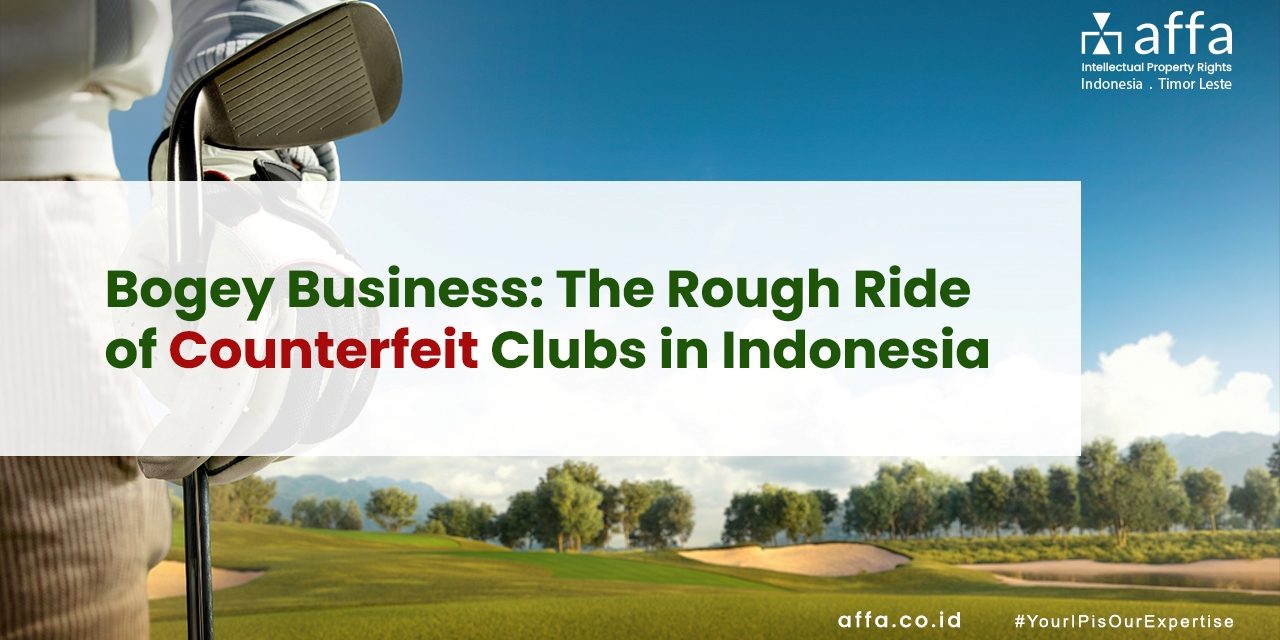Indonesia, renowned for its breathtaking landscapes and intricate cultural tapestry, has recently seen an unwelcome trend infiltrating its golfing community: the proliferation of counterfeit golf clubs and apparel. As the sport’s popularity continues to surge in the archipelago, the market for cheaper alternatives has thrived. But this search for affordability might come at a greater cost, not only affecting the game’s quality but also influencing social perceptions within the golfing circle.
Unfortunately, counterfeit clubs and apparel are widely found both online and offline. Several Instagram pages in Indonesia have been educating consumers about the differences between the original products and the counterfeit ones.

Educational content by golf gear retailers which have been helpful in educating the consumers. (Source: @golfellas.id)
1. Game Integrity at Risk
Counterfeit golf clubs, often made of subpar materials and lacking in technological advancements, don’t perform at the same level as their genuine counterparts. Clubs are specifically engineered for precise weight distribution, flexibility, and balance. When one uses a counterfeit, they’re risking unpredictable ball trajectories, reduced shot distances, and less forgiving mishits.
This makes it extremely difficult for players to refine their skills and achieve consistency. Such inconsistencies not only frustrate players but can also lead to a lack of confidence in their abilities. For those unaware they are using counterfeit equipment, it may seem like their skills are at fault rather than the club.
2. Social Judgments on the Fairway
In golf, much like other sports, there’s an unspoken code of conduct, respect, and a shared pursuit of authenticity. Using genuine equipment signifies a commitment to the game and its traditions. Therefore, when someone knowingly or unknowingly sports counterfeit gear, it can be met with skepticism and judgment from peers.
This judgment can manifest in various ways: silent side glances, hushed conversations at the clubhouse, or even outright confrontations on the course. Counterfeit apparel and clubs may unwittingly label a player as inauthentic or as someone who doesn’t value the true essence of the game.
3. Impact on Authentic Brands and Local Economy
The spread of counterfeit products doesn’t only impact players and their social standing; it also affects genuine brands that invest heavily in research and development. These brands rely on sales to fund their innovation, and counterfeit sales undermine this. Furthermore, local retailers selling genuine products are undercut by these cheaper alternatives, leading to potential business closures and loss of employment.
4. Way Forward
Addressing the issue requires a multi-faceted approach. First, awareness campaigns can educate players about the downsides of counterfeit equipment. Golf clubs and associations can also play a pivotal role by organizing equipment verification days or partnering with brands for authentic equipment promotions.
Moreover, stricter regulations and better enforcement can curb the import and sale of counterfeit golf products. Collaborative efforts between the government, industry stakeholders, and the golfing community can create a robust defense against this rising challenge.
In conclusion, while the allure of affordable golf clubs and apparel might seem tempting, the repercussions go beyond just an individual’s game. A collective effort is needed to preserve the integrity of the sport and maintain the respect and camaraderie that golfers share in Indonesia and around the world.
Should you require further information and assistance regarding IP infringements related to golf clubs and apparel in Indonesia, please get in touch with us at [email protected], [email protected], and [email protected].
Source:







